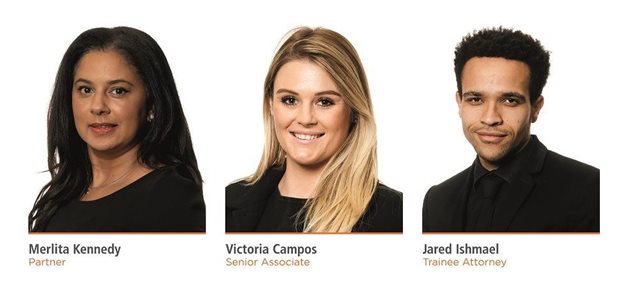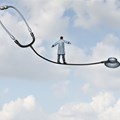Recent legal actions against practising medical professionals may deter new entrants and cause experienced practitioners to retire, which has dire consequences for effective healthcare delivery in SA.
With just one practising doctor for every 4,219 people, South Africa’s doctors are overworked. In this strenuous environment, it is inevitable that complications will occur during the course of a medical professional's lifetime.
Lately, there seems to be a movement by the Courts to consider cases more stringently, to determine whether fatal or severely damaging events can be considered as a 'complication' or 'negligence'.
A recently considered case, discussed below, highlights the impact of finding a doctor negligent and how the medical professional will likely approach practising medicine in future.
Recent case study
In Mpumalanga in 2016, a prominent gynaecologist, Dr Danie van der Walt, was convicted of culpable homicide for the death of his patient while giving birth and he was sentenced to five years imprisonment. The finding was that Dr van der Walt had negligently caused the death of his patient.
In sentencing, the udicial officer said: "You are of mature age and a valid member of the community, where you provide a much-needed service. But I hold a view that a community-based sentence will not be correct. I’m of the view that the most balanced sentence will be that of imprisonment."
This showed the monumental change in the liabilities that medical practitioners may attract in the course of their employment. Practitioners may now face imprisonment if they are found to have negligently caused the death of a patient.
Samantha Varela 31 Jul 2020 The above decision became the subject of unsuccessful appeal proceedings in the Mpumalanga High Court. Proceedings for special leave to appeal against the conviction were dismissed by the Supreme Court of Appeal. The matter was finally brought before the Constitutional Court for adjudication.
The main contentions raised before the Constitutional Court were that:
- evidence was admitted by the judicial officer on conviction as opposed to during the hearing;
- the judicial officer conducted and relied upon his or her own research which was not referred to in testimony; and
- Dr van der Walt was convicted without evidence relating to the essential element of causation.
Above all, Dr van der Walt's constitutional right to a fair trial, as contained in Section 35(3) of the Constitution, was infringed, it was argued.
The Constitutional Court handed down judgment on 21 July 2020. It agreed with the contentions raised by Dr van der Walt and ruled more specifically that the conviction was set aside on the basis that the trial court committed irregularities which had the effect of infringing the doctor’s constitutional right to a fair trial. Justice required that the matter be referred to the Director of Public Prosecutions Mpumalanga for a decision on whether Dr van der Walt should be re-arraigned. If he was, the matter should be adjudicated by a different judicial officer.
Accordingly, there is a chance that Dr van der Walt may still face a criminal conviction and possibly imprisonment.
More culpable homicide charges against South African practitioners
Arrest warrants were issued for two prominent Johannesburg doctors in October 2019 in connection with the death of 10-year-old boy. Paediatric surgeon, Professor Peter Beale, and anaesthetist, Dr Abdulhay Munshi, are accused of negligence and face culpable homicide charges in connection with a routine laparoscopic surgery performed on 10-year-old Zayyaan Sayed in October 2019.
After Sayed’s death, Netcare launched an internal investigation into the incident, which led to the suspension of both doctors by the hospital. The Health Professions Council of South Africa also launched its own investigation after more families came forward with allegations that their children had died under the care of Prof Beale.
More than 42,000 people have signed a petition for authorities to drop the criminal case against Professor Beale and Dr Munshi. Many individuals and medical professionals consider that the medical profession is being attacked and that the charges of culpable homicide were brought in this matter before thorough investigation.
Indirect consequences of these actions
Medicine is a high-risk profession and a slight error or complication may have disastrous consequences. It seems, however, that a consequence of negligence may be a criminal conviction and a sentence of imprisonment, as the courts are taking a harder approach when dealing with allegations of negligence which cause the death of a patient.
The Constitutional Court in the Dr van der Walt matter focused on the contentions brought before it and made a ruling based on the right to fair trial. It did not overturn the judgment based on the merits of the matter. Unfortunately the subject of sentencing was untouched.
Although the appeal was upheld, the judgment handed down in the Magistrate's Court will have far-reaching effects on the medical profession. Medical professionals are now practising defensive medicine, as they are afraid of facing criminal sanctions.
Defensive medicine has many negative aspects, including performing unnecessary diagnostic tests, prescribing unnecessary treatment, needless hospitalization and avoidance of risky procedures on patients who could have benefited. Given the hard approach adopted by the courts, defensive medicine is increasingly becoming professional behaviour in medical practice, which increases the cost of healthcare and sometimes lowers the quality of the service provided.
Conclusion
The possibility of a criminal sanction against medical professionals for actions undertaken in the course of their employment will only discourage potential professionals from pursuing a career in the medical industry and discourage existing professionals from continuing their careers. This will no doubt have a significant impact on the realisation of the rights to healthcare, which are guaranteed under Section 27 of the Constitution.

































